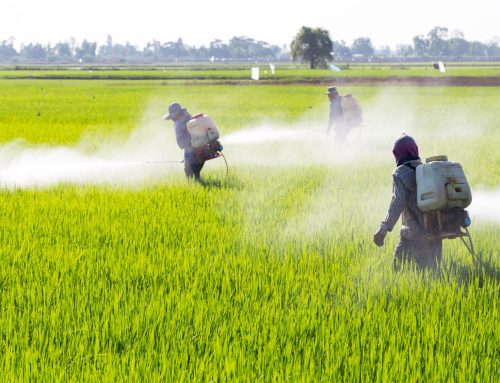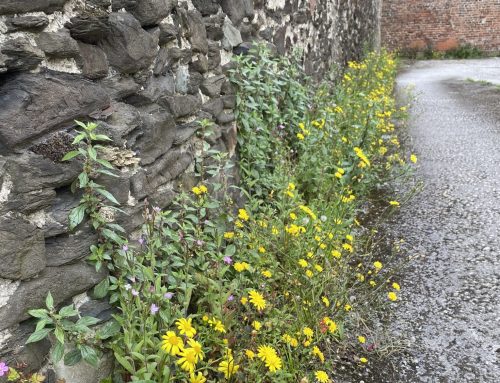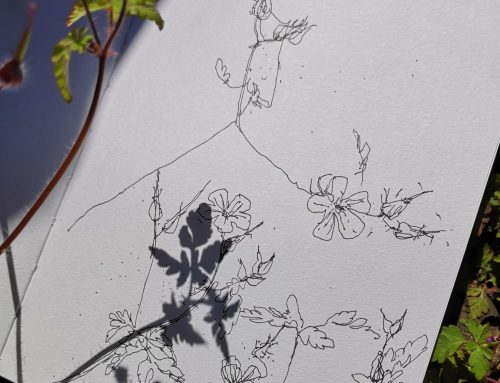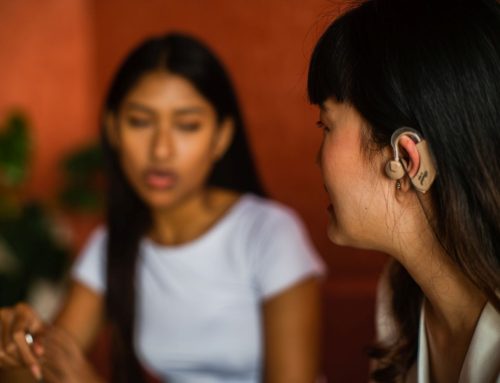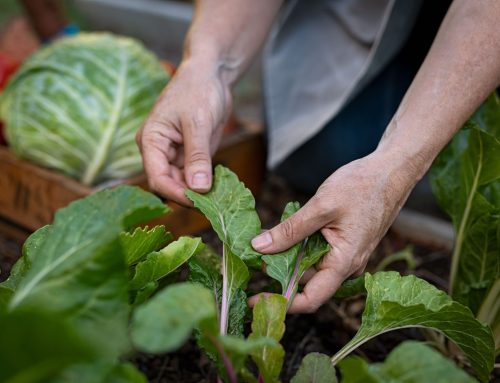The third and final part of Atalo Belay’s reflections on ten years of tackling hazardous pesticide use on smallholder cotton farms in Southern Ethiopia
Read the first part ‘The pioneers’ here.
Read the second part ‘Hard work pays off’ here.
Are we winning?
We have now trained more than 8,500 smallholder cotton farmers on Integrated Pest Management (IPM) and organic cotton production techniques via Farmer Field Schools in the Gamo and Welaita zones of Southern Ethiopia. These farmers are growing cotton without pesticides and the toxic load on the region is much reduced. You will now see traditional beehives hanging in the trees. With bees returning to the fields, more and more farmers have started beekeeping.
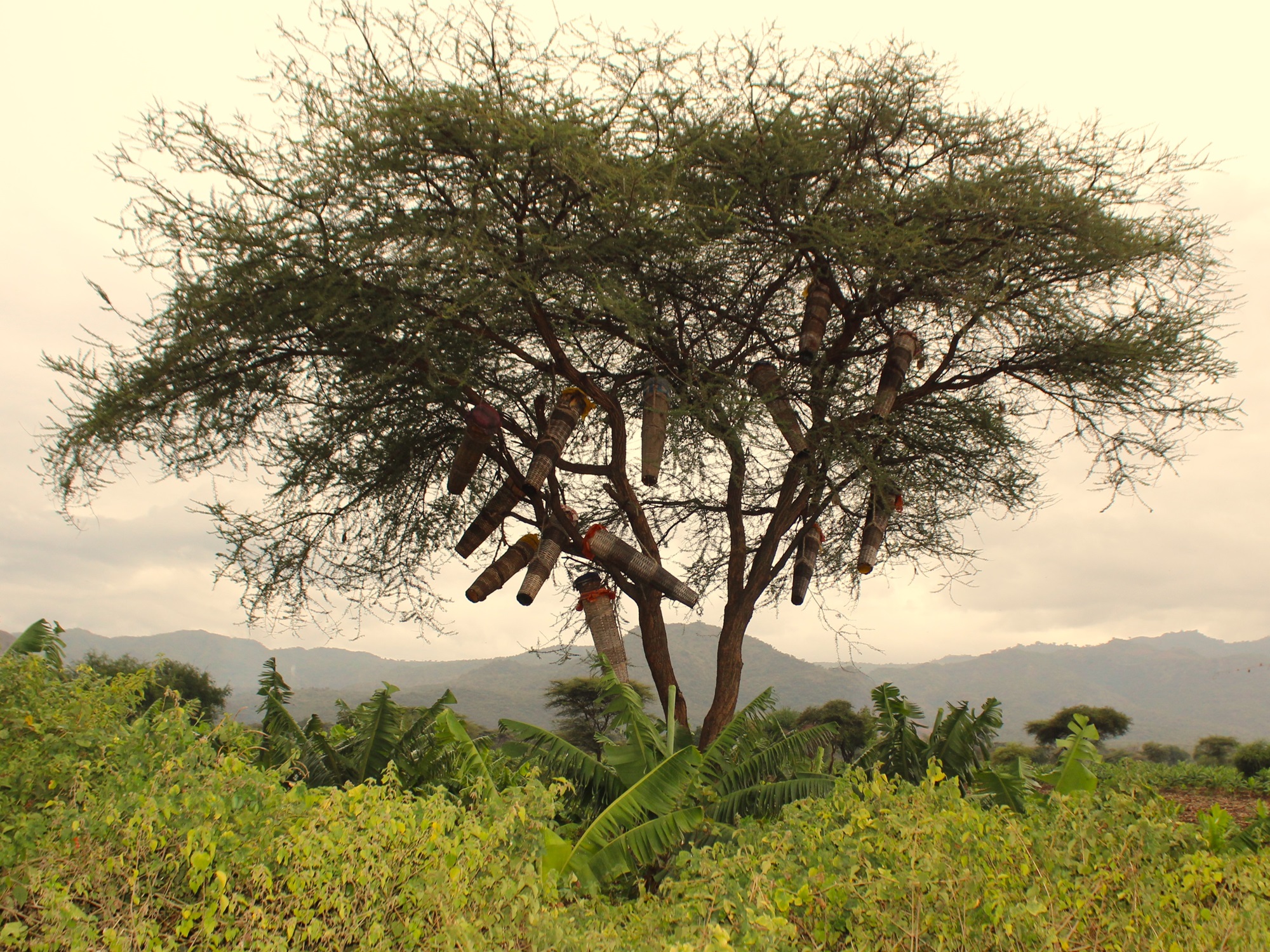
Bees, which were once absent due to excessive pesticide spraying, are returning to the fields. Credit PAN Ethiopia
Co-operatives have been set up to facilitate proper market linkages which have helped improve farmer bargaining power. I really enjoy hearing stories of farmers opening shops, buying additional land for cotton farming, building houses and sending their kids to schools, all thanks to the work we have done in the region.
We have helped women set up local cotton spinning groups and cotton seed enterprises, generating additional income and playing a pivotal role in the cotton value chain. These economic and environmental benefits ultimately improve the lives of farmer families, their children and the wider communities. Most importantly, farmers no longer live in fear that their children will take their own lives by drinking pesticides, as these chemicals are no longer found in their homes.
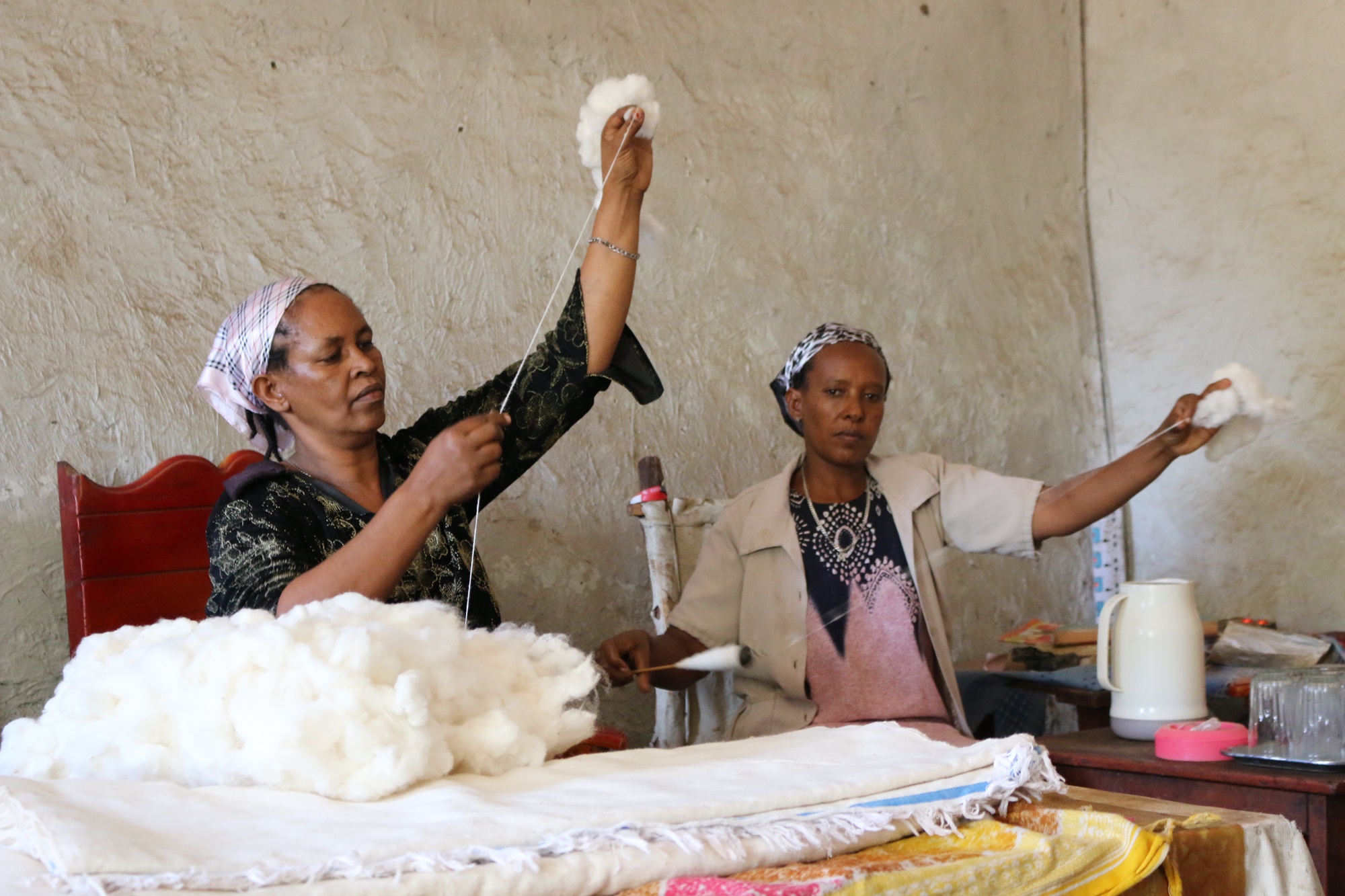
Chano Dorga Organic Cotton Spinners Association. Credit PAN UK
The challenges we still face
Unfortunately, the market aspect of the project is a real challenge. Not having definite or predictable buyers is really frustrating, as are the ups and downs in market prices. There are three strategic inputs needed for cotton production: good seed; healthy soil; and effective plant protection. We’re doing pretty well on the last two but getting enough seed is tricky. This is partly down to cash flow, and helping cooperatives to build up enough working capital is a difficult task.
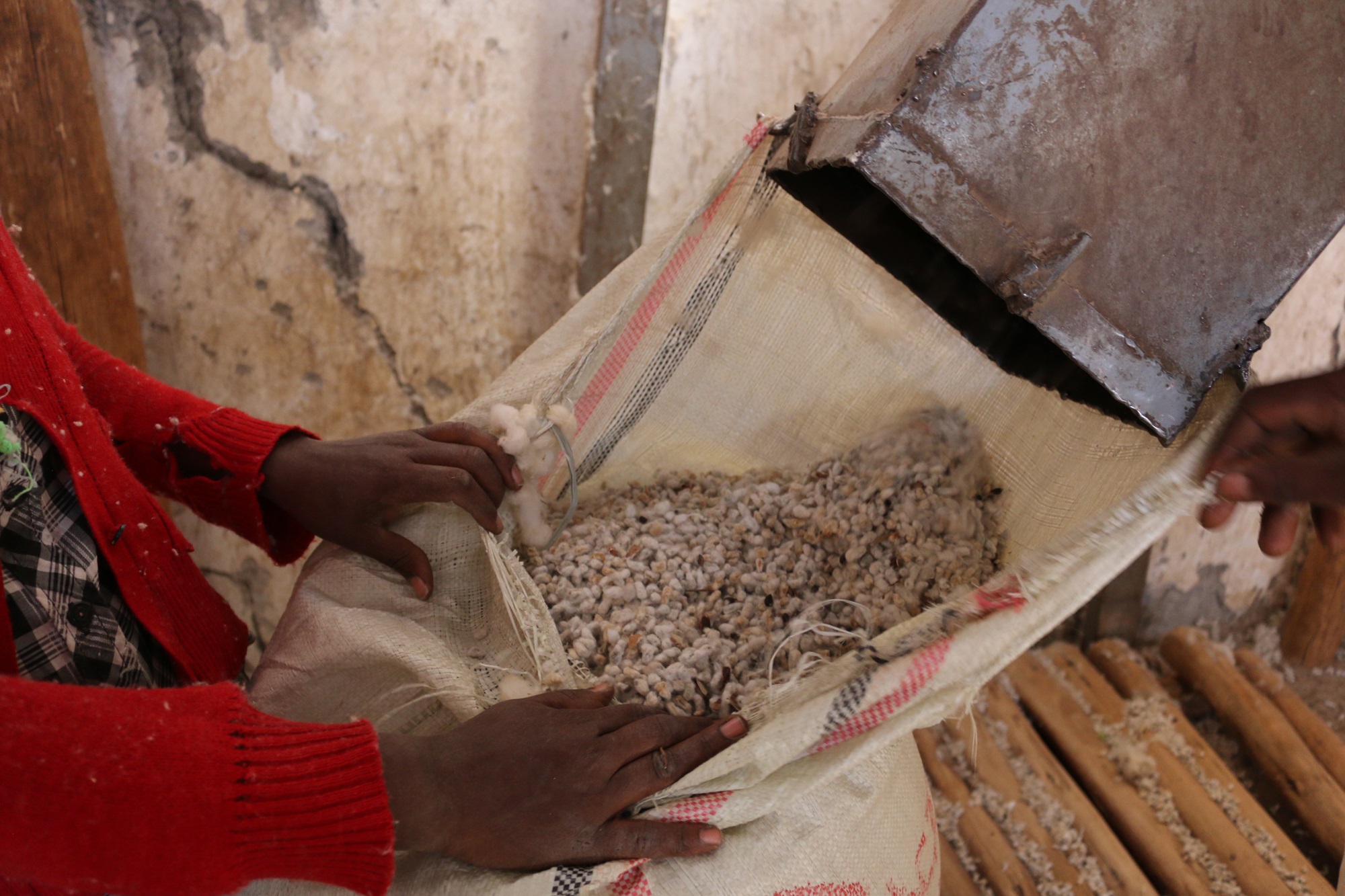
Cotton seed being collected as part of the ginning process. These will be cleaned and sold back to organic cotton farmers. Credit PAN UK
My hopes for the future
The success of the project has really changed the mind-sets of cotton grower farmers, development agents and other agriculture experts. With the growing demand for organic and other sustainably grown cotton, the Ministry of Agriculture (MoA) uses our project as an example for others, announcing in a recent workshop, that the Arba Minch and Welaita areas are now corridors for organic cotton production. The Ministry is working closely with PAN Ethiopia and has now started its own projects to expand organic cotton production to further areas.
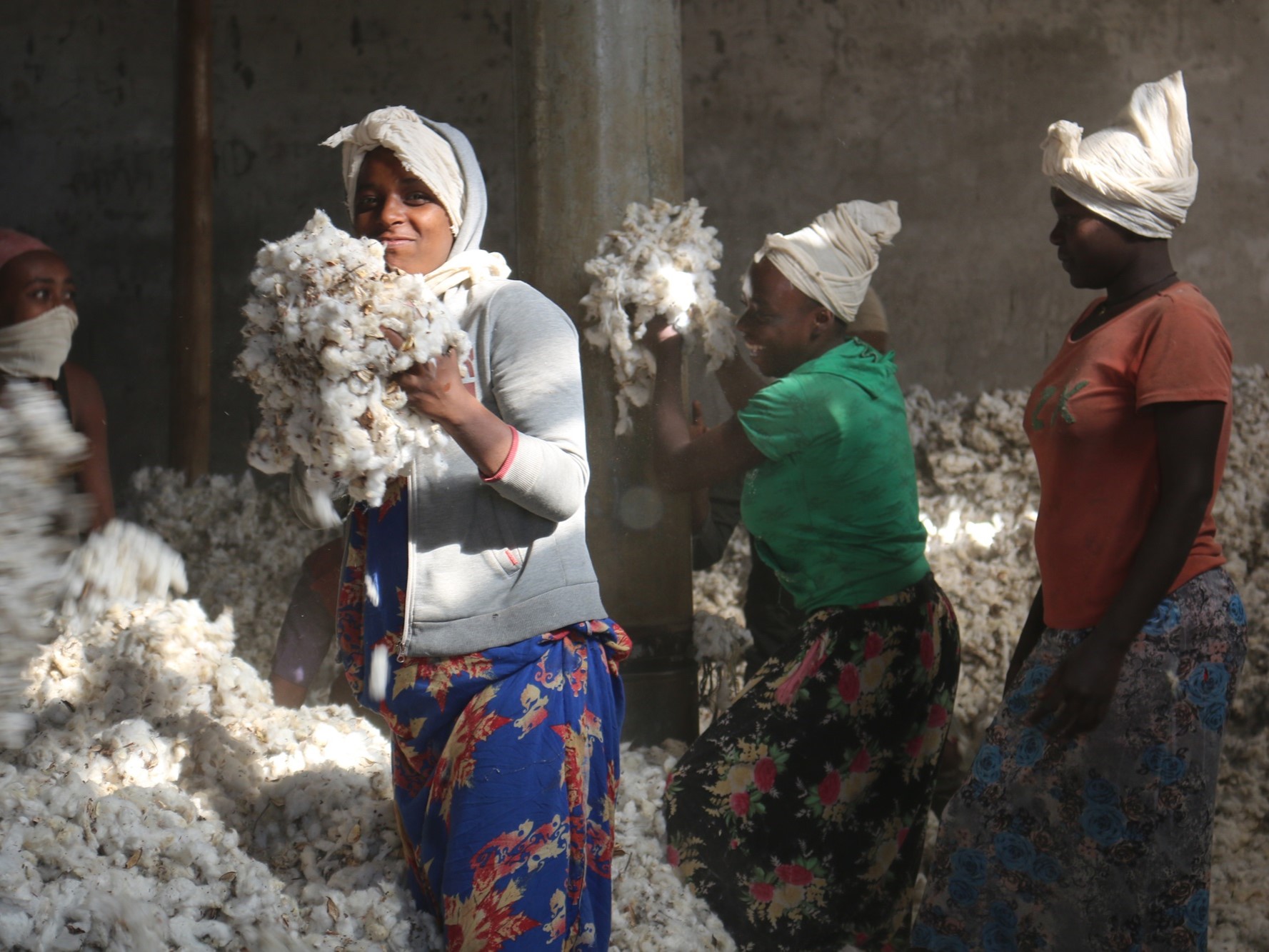
Organic cotton being processed at the local ginnery. Credit PAN UK
My goal for the future is to see farmer groups managing their own seed supply system and access more lucrative markets. We are currently unable to export our cotton as the costs make it unprofitable, but with the right support we could find a way to pool the cotton grown by our 8,500 farmers, which might attract international buyers needing large volumes.
We also need to help those farmers affected by changing climate, especially in drier areas. We’re testing and promoting ways to conserve soil moisture and to diversify to other crop types, enabling farmers to bring in more income and spread the risks caused by increasingly unpredictable weather patterns. We want to help farmers grow short duration legume crops, produce their own vermicompost and set up simple rainwater harvesting for their kitchen garden vegetables.
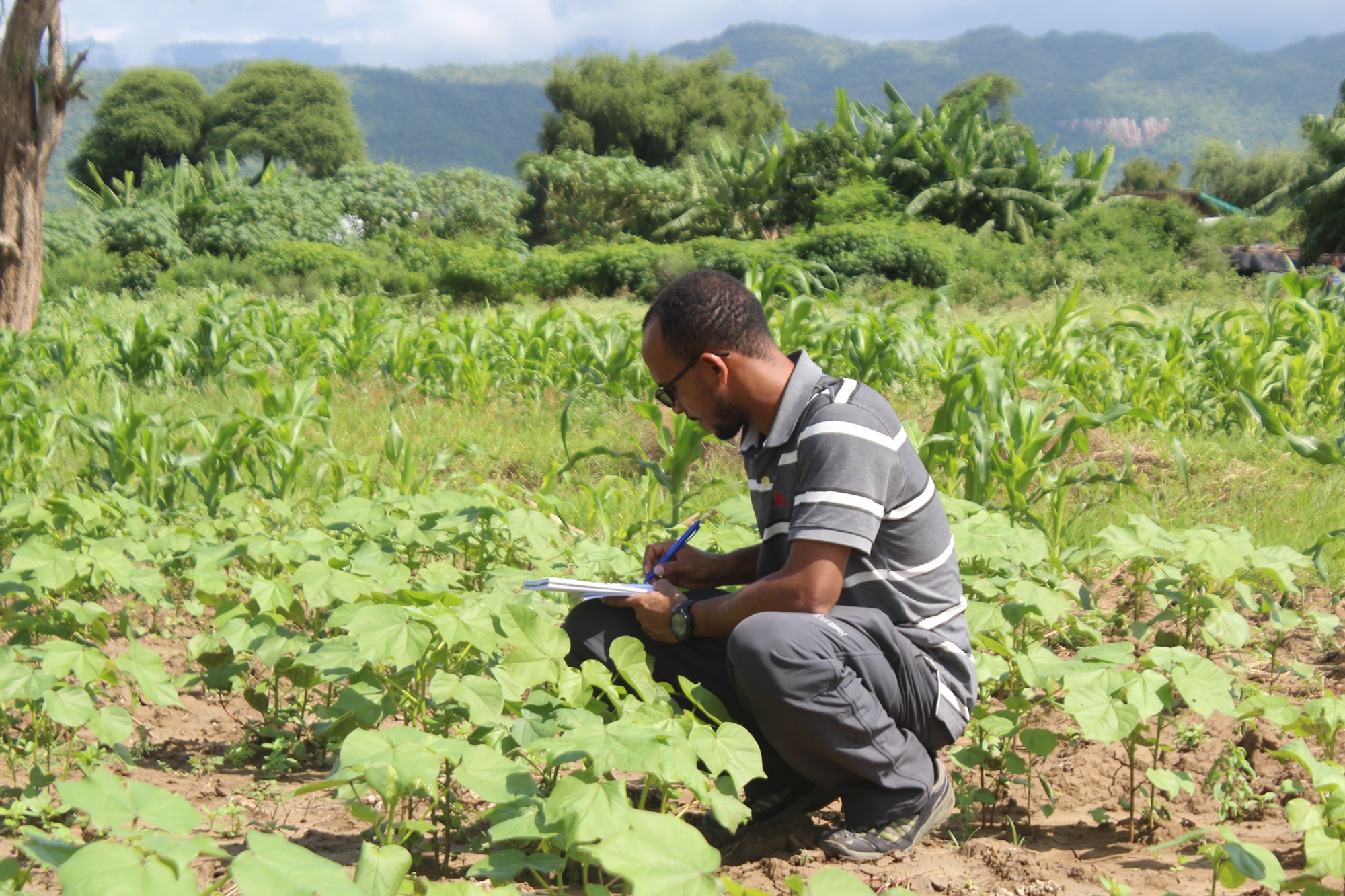
Atalo Belay assessing a cotton field. Credit PAN Ethiopia
Thanks to Traid
I am very grateful to Traid for the unwavering support in helping us to achieve the incredible results of the last ten years. I had a chance to meet Traid staff at one of their charity shops in London in October 2023 (my first trip to the UK) and the work inspires and motivates us to work even harder.
This project is funded by Traid, a UK registered charity working to tackle the environmental and social impacts of producing, consuming and using clothes.
Atalo Belay is an applied entomologist by training and is Program Co-ordinator at PAN Ethiopia. He helps run and contributes to the varied IPM projects implemented by PAN Ethiopia around the country. He also provides IPM training for farmers, agriculture extension officers, women and youth groups engaged in agriculture.
Read more about our work with cotton farmers in Ethiopia here.

